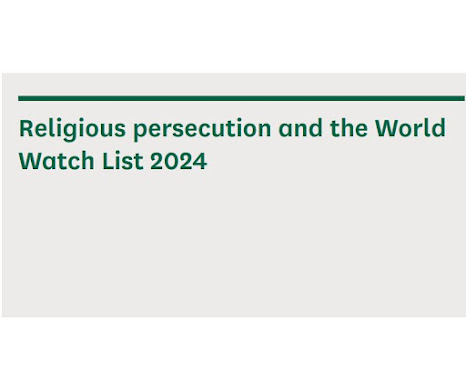STATEMENTS: Read the Message of the United Nations Secretary-General, Mr. António Guterres on the International Day to commemorate victims of acts of violence based on religion or belief 2024.
Around the world, individuals and communities face violence based on religion or beliefs.
We must urgently combat this scourge.
Governments must protect all people and places of worship, implement comprehensive anti-discrimination laws, and invest in education initiatives that foster inclusion and equal rights.
Digital platforms must enforce content moderation policies that align with international human rights standards.
Political and religious leaders must unequivocally condemn hate speech, advance dialogue, and make clear that violence can never be an answer.
We must work together to stem the tide of hatred and promote tolerance, mutual understanding and respect.
Today, as we honour and remember the victims, let us reaffirm our commitment to creating a world where everyone, regardless of their religion or beliefs, can live free from fear, stigma, and persecution.
Mr. António Guterres.
The statement of the Special Rapporteur on religious intolerance on the International Day to commemorate victims of acts of violence based on religion or belief 2024.
Statement by the High Representative on behalf of the EU on behalf the International Day Commemorating the Victims of Acts of Violence based on Religion or Belief 2024; August 22nd. (In Arabic) and (In Russian)
On the International Day Commemorating the Victims of Acts of Violence based on Religion or Belief, the European Union pays tribute to all victims of discrimination, intolerance, persecution, hatred, dehumanisation or violence because of their religion or belief.
Extremism, authoritarianism, terrorism, and conflict-driven hatred are yet not eradicated. Too many people across the world, especially from religious minorities, face attacks to their communities and see their human rights violated due to their actual or perceived faith.
We strongly believe and support the principle upon which all individuals have the right to freedom of thought, conscience, religion or belief; and to manifest or change their religion or belief, without risk of discrimination, persecution or violence.
The European Union condemns the criminalisation of apostasy, and the abuse of blasphemy laws when they violate the right to freedom of religion or belief. These laws are a dangerous catalyst of religious hatred and incitement to discrimination, hostility or violence.
We recall that all states have an obligation to guarantee human rights protection, and to exercise due diligence to prevent, investigate and punish acts of violence against persons based on their religion or belief.
The international community must unite in fighting against discrimination, hatred and violence based on religion or belief. We must promote a culture of religious tolerance, respect for diversity and mutual understanding.
Every individual regardless of whether they manifest a religion or belief, are entitled to full respect for their human rights. The EU will continue to safeguard this principle and promote its implementation everywhere.
PUBLICATIONS: The World Watch List is Open Doors' annual ranking of the 50 countries where Christians face the most extreme persecution.
Explore the Religious persecution and the World watchlist 2024.
The World Watch list is an annual report published by Open Doors, an NGO which supports Christians worldwide, and lists the fifty countries in which Christians face the “most extreme persecution”. A parliamentary launch for the latest report, which covers 2023, was held on 17 January 2024. There is no internationally agreed definition of persecution. Open Doors’ methodology defines persecution as: "Any hostility experienced as a result of one’s identification with Christ. This can include hostile attitudes, words and actions towards Christians." This broad definition includes (but is not limited to) restrictions, pressure, discrimination, opposition, disinformation, injustice, intimidation, mistreatment, marginalisation, oppression, intolerance, infringement, violation, ostracism, hostilities, harassment, abuse, violence, ethnic cleansing and genocide."
- 1 in 7 Christians are persecuted worldwide, including 1 in 5 in Africa and 1 in 7 in Asia. This compared to 1 in 8 worldwide in 2021 (PDF).
- 4,998 Christians were killed for faith-related reasons. 90% of those killed were in Nigeria, where attacks on Christians have become more common since 2020 as part of a wider rise in political violence against civilians. Open Doors estimates the number of Christians killed for faith-related reasons worldwide was 5,621 in 2023, 5,898 in 2022, and 4,761 in 2021.
- 14,766 Churches and Christian properties were attacked.
- North Korea, Somalia, Libya, Eritrea, and Yemen had the highest rates of reported persecution against Christians.
- North Korea has been consistently ranked as having one of the highest rates of persecution since the World Watch List was first conducted in 1983. The number of countries ranked as conducting “extreme” or “very high” persecution has risen from 23 in 2015 to 55 in 2023.
Open Doors UK has also published an Advocacy report (PDF) in 2024, which makes several recommendations on UK Government action, including:
- Prioritising freedom of religion or belief (FoRB) and making it central to engagement with other countries and in international organisations.
- Committing resources to fragile states to support FoRB.
- Targeting programmes to address gender-specific persecution.
- Ensuring Artificial Intelligence and other emerging technologies are not used to persecute religious groups, and to establish global standards to this end.



No comments:
Post a Comment